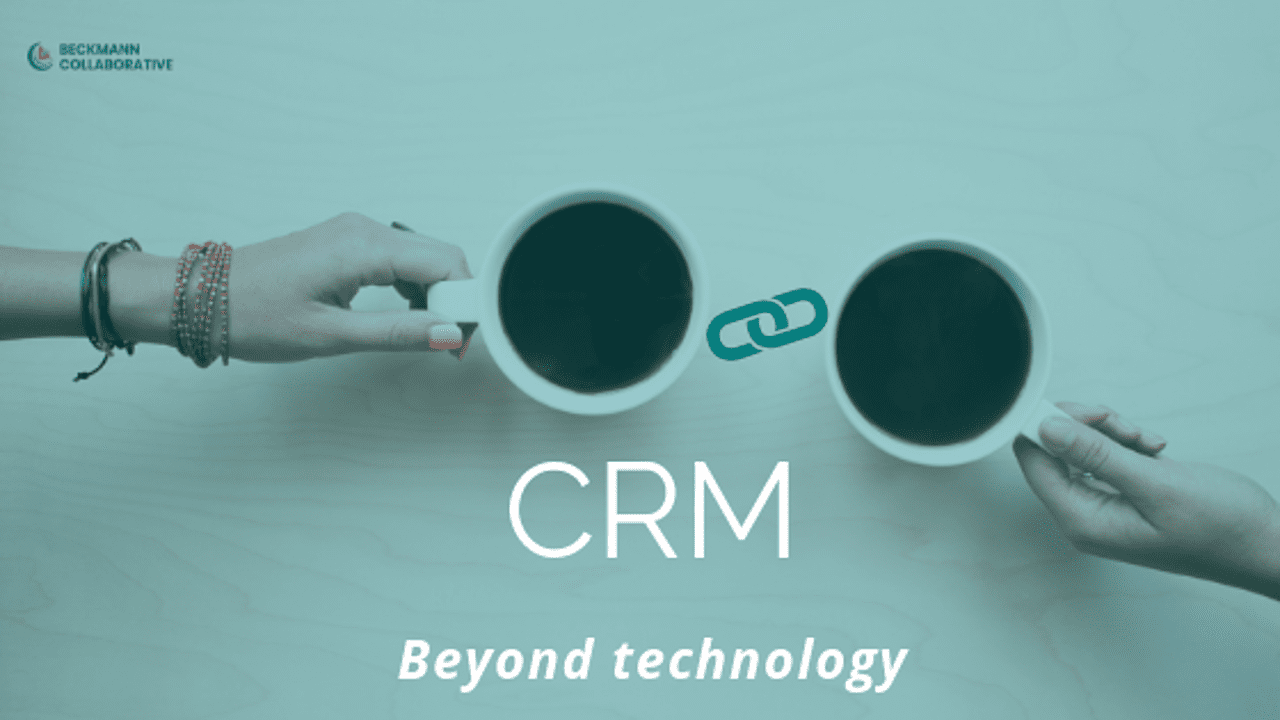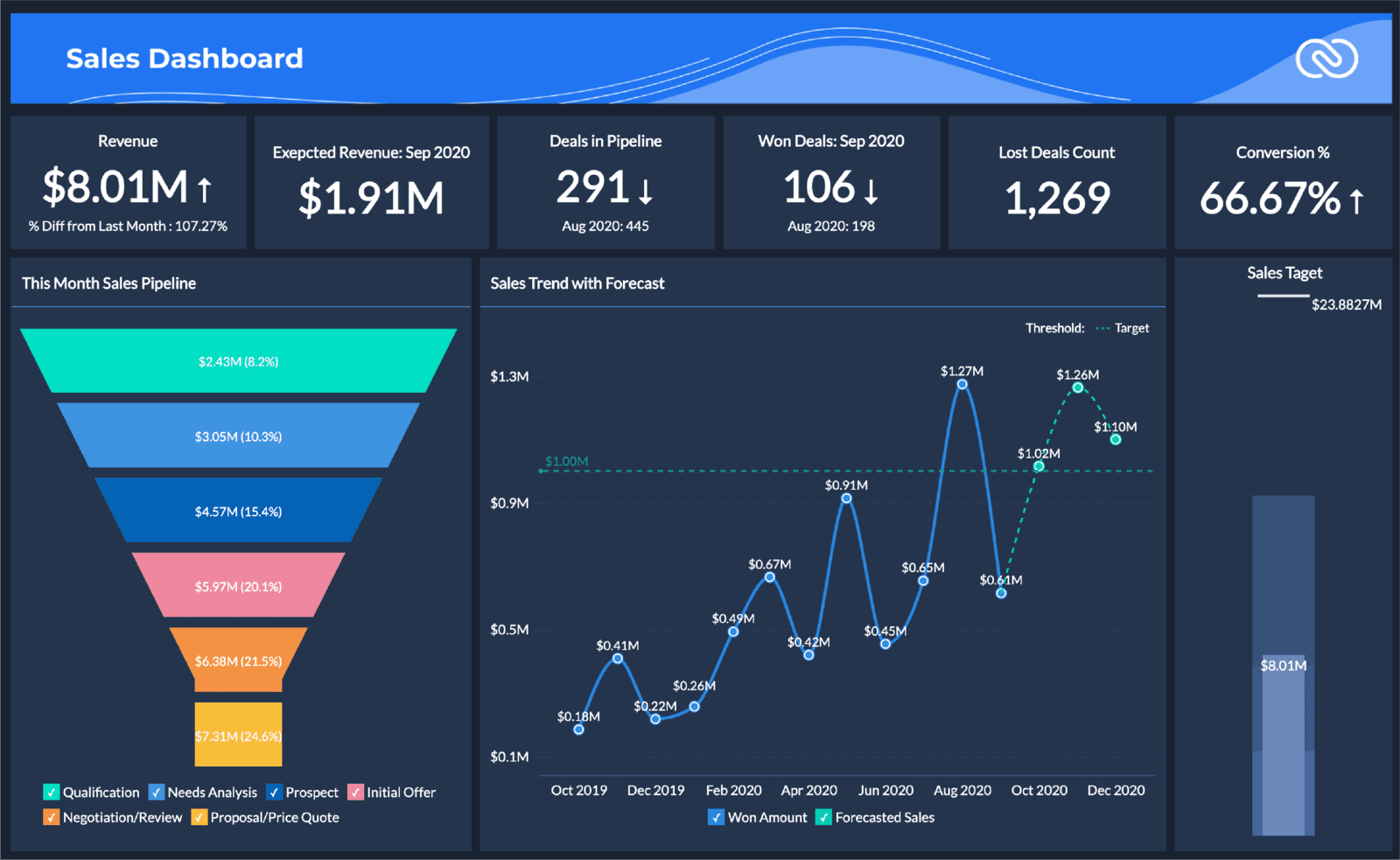
Originally published Aug 19, 2019
What is a CRM Strategy?
While the term CRM (Customer Relationship Management) is often used by sales teams to describe contact management for leads, there is more to your CRM than a bloated spreadsheet or software. Among high-tech marketers, CRM usually refers to the software or systems used to manage your business relationships. Without a strategy, a CRM software is just another tool.
Achieve Goals
Most of us serving other businesses have a common goal: to grow long-term relationships with customers and prospects that ultimately increase revenue and lifetime value. If you have this goal, then you need a CRM strategy.
There are many different ways people define a CRM strategy. To define your own, start by considering the many ways things you do for business development, sales, and on-going management of client relationships. When done well, your CRM strategy will define how you can optimize your time spent on managing relationships and maximize your sales.
If you are using a CRM software, the strategy will intertwine with how you leverage the different features to achieve this strategy. In a separate article, we'll get into all of the logistics behind why a CRM software is vital to your business. Today, we are sharing 5 simple reasons that a customer relationship management strategy may be needed in your business.
#1 Know Your Customers / Target Audience
When you are developing real relationships, there's no way to "fake" it. As your marketing consultant, I might ask you to close your eyes and imagine your customer. Can you describe this person? Do you know about what frustrates her most about her job or what his preferences are for business communication? If you cannot answer those basic questions, then you probably do not actually know your customers.
[For those of you thinking, my customers are businesses not people – it's time to start thinking about the people making decisions at those companies.]
One of the most powerful things I discovered after implementing a CRM strategy for my own business was that it is also a market research tool. Within Zoho CRM, for example, I can view reports that show patterns among customers and prospects – such as industries, company size, or location. The right data analytics can help you better understand your different target audiences and the segments within them.
Even if you're just using a spreadsheet right now, you can make reports on platforms such as Zoho Analytics to see patterns. Perhaps you are attracting more people from a specific niche market than you realized. Knowing this kind of information can have a major impact on your sales, marketing, and even operations.

#2 Build Better Customer Relationships
People are demanding personalization more than ever. According to the State of the Connected Customer Report, customers want businesses to understand their individual needs and expectations, however 66% of people often feel they are treated like numbers.
Personalization is when a business uses data to tailor communications to specific needs and preferences. The moment a potential customer feels treated like another number, you have most likely lost them.
The customer data you have collected already can help you to build stronger relationships and serve customers/clients better. That data allows you to ask smarter questions that relate to them, offer services or products based on their needs, or educate them about something they did not quite understand. You may be surprised at the impact of something trivial like a custom birthday email.
#3 Sharing Data Across Your Organization
Data sharing is more about your CRM software system and business guidelines than your CRM strategy, though the two are intertwined. A big issue for quickly growing companies that are scaling is the appropriate sharing of information.
When you suddenly have three new salespeople to train and they know nothing about your top customers, it is a big challenge. In comes your CRM system and your team onboarding program. If you have created a thorough CRM strategy and implemented a CRM software system, then it is much easier to onboard your new team members.
Within your CRM strategy will not only be the sales and marketing "how to" steps, but it should also include data sharing rules. These rules define who sees what information (potentially how and why).
For example, if you have a sales team spread out across the country where each person has a dedicated region for selling, then your strategy outlines what that region includes and how the prospect data is divided up. In Zoho CRM, this function is called Territory Management. This feature allows you to segment customers and prospects into individual territories and assign a sales representative to each one.
After defining your strategy and setting up your system to reflect it, guiding people through the correct ways to use the different features and fields will set them (and your business) up for success. Say goodbye to wasted hours and reduce the likelihood of major mistakes.

#4 Optimize Customer Communications
Both over-messaging and under-messaging customers are problems for any business. Many business owners and marketing directors have shared their fear of sending too many emails.
If there are too many emails, SMS messages, social messages, and phone calls to customers, then some customers may feel overwhelmed - creating marketing content fatigue. On the other hand, disappearing from the minds of your customers is also ineffective.
There is a delicate balance in the frequency of customer communications. If you are tracking your customer communications using a CRM system, this is less of a problem. Assuming you have everything integrated, you can see all of the communications received by an individual. With the right software, you can also see detailed email analytics (for example), to help you better understand which messages are most effective.
#5 Analyze Your Customers as Revenue Generators
Yes, we treat all customers equally with high-quality service and products. It's important to know which ones are the most valuable to the company. That means tracking your sales or deals with all the specific details and matching them up to the right customers. You may be able to do this with your bookkeeping software to an extent.
Using a CRM will also allow you a few other ways to understand the value of your customers. This includes attribution to any marketing campaigns that led to the sale, lead scoring, referral contacts, and a level of detail that is usually not on an invoice (such as a breakdown of the project deliverables).
While developing a CRM Strategy is a fairly big undertaking, it is worth the time investment upfront. When you skip over this step, many issues arise over time such as bad data. If you want to get started on it right now, then download our free guide to developing your CRM Strategy. And if you want support or guidance through this process, then drop us a line by filling out the form below.

